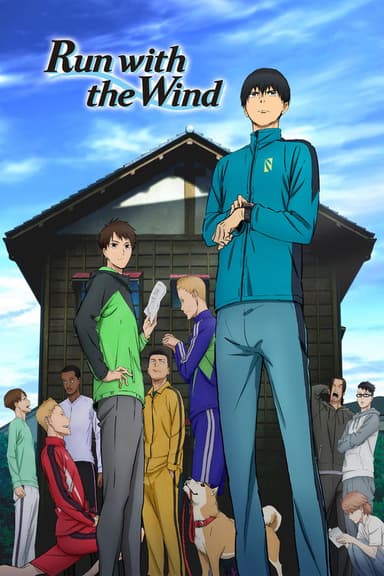
The Great Passage
2016 • Animation, Drama • TV-14
The publication of a new dictionary titled The Great Passage progresses. Mitsuya Majime, originally from publisher Genbu Shobo's sales department, has been recruited by Kouhei Araki, a veteran editor of the dictionary department who is looking to retire soon. The dictionary department is known internally as the "money-eating insect," but Mitsuya uses his perseverance and attachment to the words in order to become a great editor. Mitsuya, who has poor social skills, finds himself working with another man named Masashi Nishioka, who is able to express himself better.
Why you should read the novel
Read The Great Passage by Shion Miura to experience the story as it was first imagined, with intimate access to the inner lives of lexicographers building a dictionary word by word. The English translation beautifully preserves the novel’s lyricism and quiet humor, letting you savor every nuance.
On the page, the craft of lexicography unfolds with tactile detail and philosophical depth. You feel the weight of each definition, the debate behind usage notes, and the tenderness in how language connects people. The novel offers a contemplative pace that rewards close reading and reflection.
If you enjoyed the TV anime, the book deepens the themes you loved while revealing layers of motivation, doubt, and dedication that only prose can capture. Discover why readers worldwide celebrate The Great Passage as a modern literary classic.
Adaptation differences
Voice and perspective are the biggest shifts. The novel leans into close interiority, especially for Majime and Araki, dwelling on hesitation, conviction, and the private logic behind editorial choices. The TV adaptation externalizes these moments through dialogue and scene work, prioritizing momentum and visual metaphor over extended inner monologue.
Pacing and structure also diverge. The book spans years with measured time jumps and quiet transitions, inviting readers to feel the slow accumulation of labor. The series reshuffles and compresses some beats to fit episodic arcs, adding connective scenes that highlight milestones, office dynamics, and the emotional highs of the project’s progress.
Character emphasis shifts subtly. On screen, Nishioka’s sociability and workplace cross-department interactions receive more spotlight for contrast and levity, while Kaguya’s relationship with Majime is streamlined to maintain narrative flow. The novel spends more time with Araki’s aging and mentorship, offering a richer meditation on vocation and legacy.
Themes land differently at the end. The adaptation builds to a visually satisfying publication crescendo, underscoring teamwork and fulfillment. The book lingers longer on the idea that a dictionary is never truly finished, foregrounding revision as an ethic and a way of seeing the world. Both honor the same heart, but the novel leaves a deeper afterglow of reflection.
The Great Passage inspired from
The Great Passage
by Shion Miura
